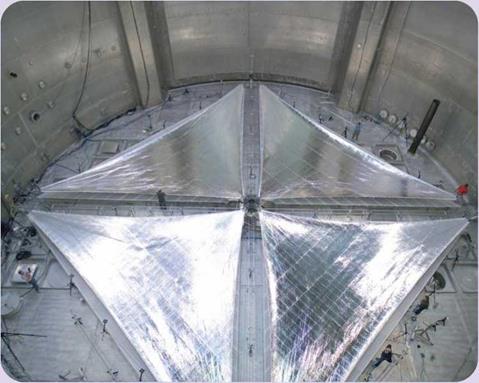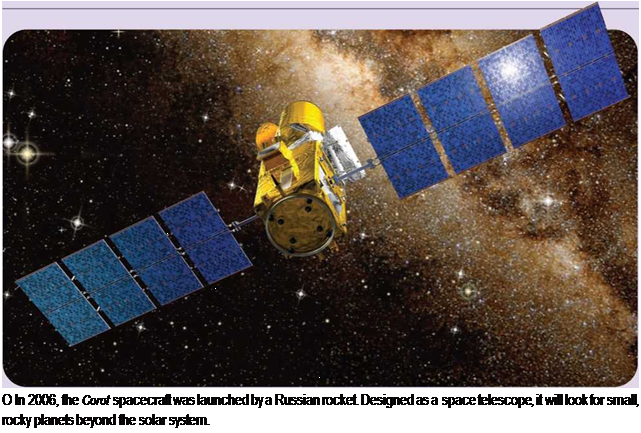Future Missions
Future missions to planets will follow the examples of the Huygens/Cassini mission to Saturn’s moon Titan and Galileo’s voyage to Jupiter’s moon, Europa. Europa is especially interesting to scientists. One ambitious project, called Icepick, plans to send a diving probe to plunge into the waters of the ocean believed by many scientists to lie beneath the surface of Europa.
 |
 |
Such planetary missions take years to plan and years to fly. The European Space Agency’s Rosetta craft, which was launched in 2004, will not reach its target (a comet) until 2014. Messenger,
 |
only the second spacecraft ever sent to Mercury, was launched by the United States in 2005. It will not arrive near Mercury until 2011. NASA also plans to send the Juno probe to explore Jupiter, the biggest planet in the solar system, by 2010.
Scientists would welcome a future, safer method of recovering data from spacecraft after missions. The Genesis spacecraft, launched in 2001, spent 884 days orbiting the Sun, collecting minute particles of the stream of gases known as the “solar wind.” The plan was to return these samples to Earth, using helicopters to recover a capsule landed by parachute. Unfortunately, the parachutes did not open correctly, and Genesis crashed into the Utah desert in September 2004.
Scientists are eager to extend our knowledge of other planets. They hope to study comets and asteroids and inves
tigate the myriad stars that lie beyond our solar system. Space scientists are curious to examine the material of which comets are made. They want to explore the planets of the solar system, such as Saturn, which was visited by the Cassini probe in 2004. Above all, scientists want to probe the stars for evidence about how the universe was formed and to search around distant stars for Earthlike planets that might contain life.
N
SEE ALSO:
• Fuel • NASA • Satellite • Spaceflight • Space Probe • Space Shuttle
_____________________________________________ J










